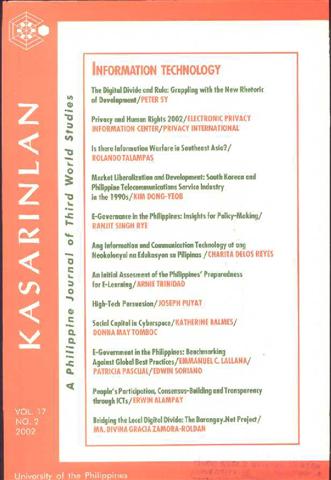Privacy and Human Rights 2002: An Extract of the International Survey of Privacy Laws and Developments
Abstract
Global political conjunctures exhibit how Washington's war against terrorism post 9/11 can easily translate into a war against freedom and privacy. The Internet, as a medium of political and private communication, is being subjected to state controls which impinge on the civil liberties of Netizens. It gradually becomes an instrument of oppression rather than of freedom and openness. The 9/11 event has compelled nation-states to re-examine their security mechanisms. Countries like New Zealand, Australia, France, Germany, South Africa, Canada, India, United Kingdom, Zimbabwe, USA and the Philippines have instituted legal and social strictures as protection to foreign aggression. These efforts are supportive of the Bush government's crusade to increase communication surveillance of transactional-local data and communication technologies, weaken data protection statutes, increase data sharing and profile identification and control data traffic in the Web. Concomitantly, supranational bodies like the Council of Europe, G-8 and the European Union have ventured on the formulation of legal and economic frameworks in averting the increasing number of cybercrimes.
Published
2008-05-27
How to Cite
ELECTRONIC PRIVACY INFORMATION CENTER, .; PRIVACY INTERNATIONAL, ..
Privacy and Human Rights 2002: An Extract of the International Survey of Privacy Laws and Developments.
Kasarinlan: Philippine Journal of Third World Studies, [S.l.], v. 17, n. 2, p. 21-50, may 2008.
ISSN 2012-080X.
Available at: <https://journals.upd.edu.ph/index.php/kasarinlan/article/view/689>. Date accessed: 23 sep. 2025.
Section
Features
Keywords
Internet; privacy; human rights; laws; cybercrimes
By submitting a manuscript, the authors agree that the exclusive rights to reproduce and distribute the article have been given to the Third World Studies Center.



